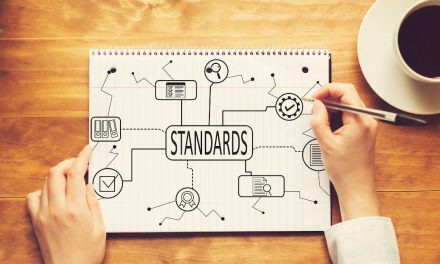What would it look like if, instead of the traditional performance reviews focused on functional skills, leaders in senior living were evaluated on their Emotional Intelligence?
By Pam McDonald
What would it look like if, instead of the traditional performance reviews focused on functional skills, leaders in senior living – where caring is the raison d’etre – were evaluated on their Emotional Intelligence?
An Assessment
Where would you land in your ability to nurture meaningful, professional relationships with staff, residents and their families? How would you rate on a scale from 1 as the lowest to 5 as the highest for the following?
-
Self-awareness:
-
recognize how emotions affect thoughts and behavior
-
know your strengths and weaknesses
-
work confidently
-
Self-management: Are able to
-
control impulsive feelings and behaviors
-
manage emotions in healthy ways
-
take initiative
-
follow through on commitments
-
adapt to changing circumstances
-
Social Awareness:
-
understand the emotions, needs and concerns of internal and external customers
-
pick up on emotional cues
-
feel comfortable socially
-
recognize power dynamics
-
Relationship Management:
-
know how to develop and maintain good relationships
-
communicate clearly
-
inspire and influence others
-
work well in a team
-
manage conflict
Liberty Lutheran’s Journey with EI
At last month’s California Assisted Living Association (CALA) conference in Sacramento, Christopher Ridenhour led a leadership session and demonstrated some possible outcomes of using Emotional Intelligence (EI) as a professional tool.
Chris is the Director of Staff Engagement Training for Liberty Lutheran, a nonprofit that operates four senior living communities in Pennsylvania and provides resources to individuals and families facing life-changing situations. He said, “Listening, seeing, and gauging are the most important things leaders do.”
In a Leading Age magazine article, he further defined EI and described Liberty Lutheran’s journey to create a culture based on EI principles that foster open communication, trust and accountability.
EI in the Business Arena
Chris noted that EI started becoming popular in the 1990s primarily through a journal article by psychologists John D. Mayer’s and Peter Salovey. They defined EI as “the subset of social/emotional intelligence that involves the ability to monitor one’s own and others’ feelings and emotions, and to discriminate among them and use this information to guide one’s thinking and actions.”
Articles in the New York Times and other mainstream publications as well as conferences on the competitive benefits of EI helped bring it out of academia and into the business arena.
Leaders at Liberty Lutheran recognized the need for staff to utilize and model an even greater adaptability in the face of increasing workforce diversity, changing regulations, complex resident needs, and the company’s rapid growth in size and services.
Integrating EI Tenants into Its Workplace
They took several critical steps to weave EI into the fabric of their culture. They brought in experts to fully orient senior management on EI concepts, behaviors, and desired outcomes. They also rolled out a training program for all levels of staff and revised performance evaluations to reflect new behaviors.
Chris said, “We needed to institutionalize our cultural ambitions and developed 10 core competencies on which to evaluate our staff.” Core competencies include the following specific workplace behaviors:
-
Caring and compassion
-
Communication and listening
-
Financial responsibility
-
Customer service
-
Integrity and trust
-
Job skills and functional knowledge
-
Leadership
-
Outcome orientation
-
Team orientation
-
Talent assessment and development
Chris believes that positive internal and external relationships have led to several honors and community recognitions, including placement as #1 in the Philadelphia Inquirer’s “Top Workplace in Southeastern Pennsylvania” for their senior community in Ambler; and employee engagement, retention, advocacy and passion labeled as “Best in Class” by People Metrics, a Philadelphia firm that, among other services, surveys employees.
Chris said, “The topic of EI in senior care has been well-received by audiences across the country. It is clear . . . that the more emotionally capable professionals are, the greater the potential impact will be on all of the organization’s benchmarks.
“For Liberty, work relationships defined by cooperation and respect, serve as critical indicators that staff recognize their part in the success of the organization and execute their tasks in a manner aligned with our mission, vision and values. Our commitment to supporting staff as they increase their awareness of EI defines Liberty culture.”








